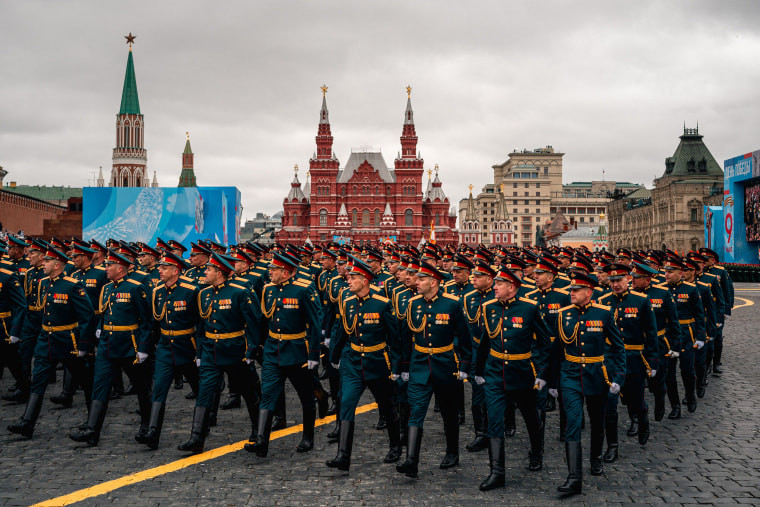Russia’s annual Victory Day, celebrated on May 9, arrives this year with the shadow of war in Ukraine looming over it.
The holiday commemorates Russia’s World War II triumph with a patriotic display of raw military power: Troops parade through Moscow’s Red Square alongside military hardware including intercontinental ballistic missile launchers. President Vladimir Putin has stood at the center of celebrations since 1999, either as president or prime minister, and has been joined by Soviet war veterans.
But as this year’s parade approaches, the military pomp and pageantry will contrast starkly with the hard-fought battles and setbacks the Russian military is reportedly experiencing in Ukraine — leaving some experts wondering how Putin will be able to present Russia’s stalled invasion as a success on Victory Day.
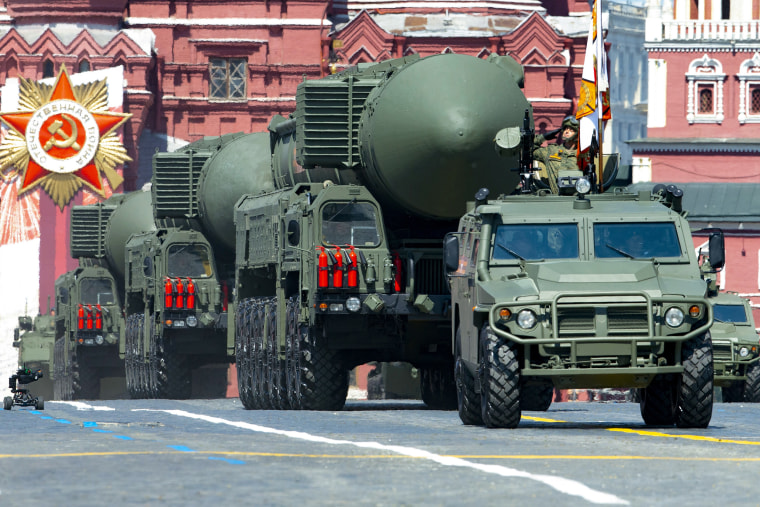
Why is it so important?
Although Nazi Germany ended all its military operations at 23:01 Central European Time (5:01 p.m. ET) on May 8, 1945, Russia celebrated victory on May 9 because the change in time zone meant it came early that morning for them. Other former Soviet nations and some Eastern European nations do likewise.
For the former Soviet Union, the victory parade that followed was “very important because it gave it the status of world power, so they were celebrating that glory,” said Thornike Gordadze, a senior fellow at the International Institute for Strategic Studies, a think tank based in London.
After the collapse of the Soviet Union in 1991 and the subsequent economic hardship in Russia, Putin took office and tried to make the defeat of Nazism the country’s “founding myth to cement the population together and create a Russian identity,” Gordadze said.
Writing in 2015 about his personal experiences of the war, Putin said his infant brother Viktor was killed and his parents were seriously injured during the siege of Leningrad, which lasted from 1941 to 1944 in the city now known as St. Petersburg.
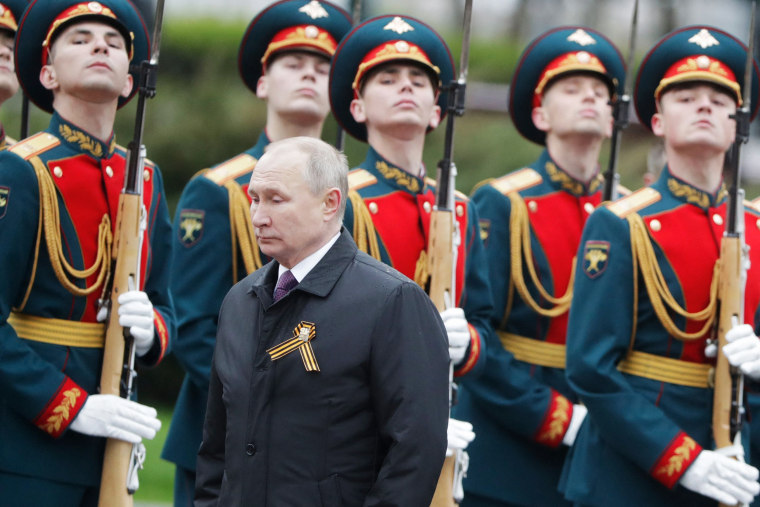
Putin now uses his annual speech at the parade to “talk about contemporary security issues,” said Ben Soodavar, a political scientist in the war studies department at King’s College London. “It speaks to Russia’s purpose in world politics.”
For Putin, he said, it was a way of communicating to the Russian people that “he is the person to lead this country through adversity, as was the case in 1945 when Russia overcame Nazism.”
What will Putin do?
On Victory Day itself, Putin “can’t line up his soldiers and say they’re winning,” Soodavar said. “They have lost thousands.”
But he added that it would be “very easy” for Putin to lie in his speech because the chances of dissent are small.
Members of Russia’s armed forces “may disagree with their leaders but they don’t do it publicly," Soodavar he said. “It’s not just fear of retribution, it’s also a fear of being accused of disloyalty. It’s to do with keeping Russia’s pride intact.”
Will Victory Day affect the campaign in Ukraine?
The Russian military is facing pressure to deliver results in time for Putin’s Victory Day speech “because there are serious implications surrounding the key word ‘victory,’” Soodavar said.
The tactical retreat by Russian forces from the areas surrounding Ukraine’s capital, Kyiv, and the northern city of Chernihiv in early April make it “look like they’re defeated, like they couldn’t take over the key strategic objective that they were looking for,” he said.
As a result Putin “will need to sell this shambolic military campaign in some way,” Soodavar said, adding that the most immediate way to do this would be to take firm control of Ukraine’s Donbas region and other parts of the country’s east.
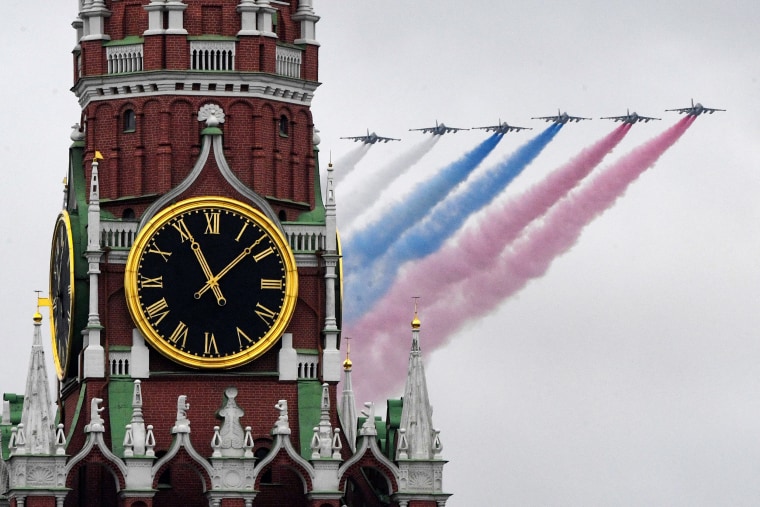
“What that will mean is more bombing, a much more prolific bombing campaign,” Soodavar said, adding that the besieged southern city of Mariupol and Kharkiv in Ukraine’s northeast would likely be subjected to sustained attacks again.
However, he cautioned that Ukraine’s “best fighters are stationed there,” and have been fighting Moscow-backed separatist forces since 2014 when Russia threw its weight behind an insurgency in the Donetsk and Luhansk regions after annexing Ukraine’s Crimean Peninsula.
“They have been fighting on the front line for the last eight years. They are battle hardened, they know who their adversary is, they’re entrenched and they’re only emboldened by the Russian retreat from Kyiv,” he added.
This, he said, raised questions about whether Putin would be able to truly project the powerful image he has presented on Victory Day.
What about other Eastern European countries where Victory Day is celebrated?
In some former Soviet republics where Victory Day is also held on May 9, “they will do everything to celebrate but keep it away from Russian success,” Gordadze said. That’s also true of countries with large Russian-speaking populations like Estonia, Latvia and Moldova, he added.
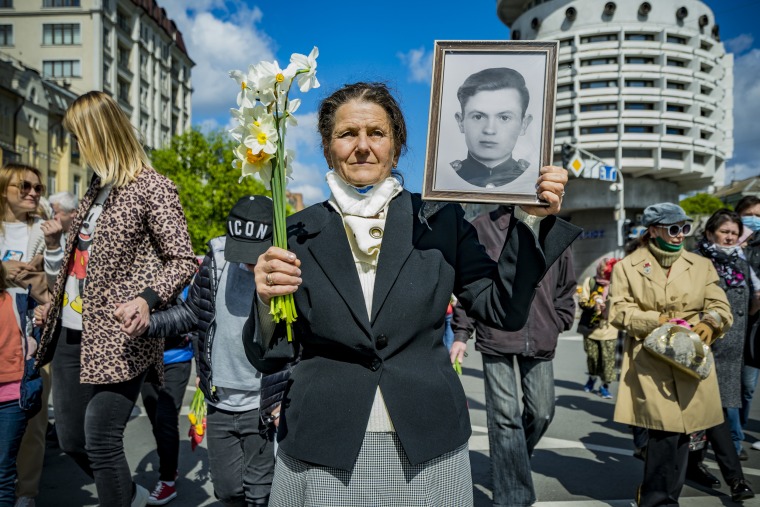
So “it is unlikely we will see Russian flags,” but people will mark the occasion and commemorate the dead, he said.
It will also be a big day in Ukraine and for President Volodymyr Zelenskyy, he said.
“Some Ukrainians believed when Zelenskky was elected that he was a pro-Russian candidate," Gordadze said. "Now they don’t think so, because he’s the guy who represents the whole of Ukrainian society, including Russian speakers."
